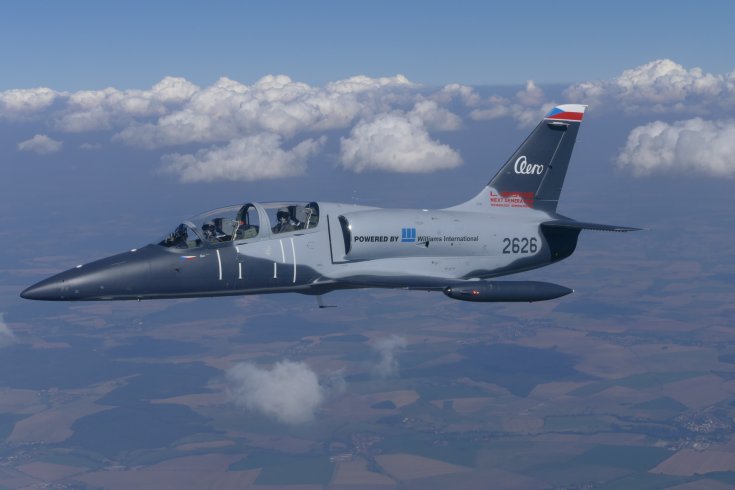The Aero L-39NG (Next Generation) is a turbofan-powered military trainer aircraft currently under development by Aero Vodochody. L-39NG is based on aero dynamical concept of the Cold War era Aero L-39 Albatros, but is manufactured with the use of new technologies and contents modern systems. It is intended to provide enhanced military flight training capabilities required for fourth and fifth-generation fighters. It will serve as a primary and advanced jet trainer, full weapon training aircraft, and attack aircraft for nations with limited air force. It can also be used to conduct light combat and reconnaissance missions under all climatic conditions. L-39NG aircraft offers unprecedented efficiency along with minimal maintenance. L-39NG is a modern trainer aircraft with a low acquisition price and improved flight characteristics while keeping up its tradition of simple maintenance.

The L-39NG aircraft is being developed and marketed in two stages. The L-39NG upgrade program (Stage 1) contains an installation of FJ44-4M engine and optionally the Stage 2 avionics to existing L-39 Albatros. On 20 November 2017 Aero Vodochody announced they have completed the development of the L-39CW and on 14 March 2018 they announced that the L-39CW, equipped with both the new engine and the new avionics, received type certificate. The second phase (Stage 2) represents newly built L-39NG aircraft with the possible use of components from the previous upgrade to Stage 1, once the original airframe reaches the end of its life. Flight testing of this L-39NG variant is scheduled for the end of 2018. In June 2017, Aero Vodochody unveiled its plan to build four pre-production examples of L-39NG for testing and demonstration. In July 2017, Aero Vodochody began producing parts for the assembly of four aircraft, three of which are to be prototypes and one pre-serial production aircraft. The first L-39NG prototype was rolled out in Odolena Voda on 12 October 2018.

The L-39NG measures 12.03m in overall length and has wing span of 9.56m. It has an empty weight of 3,100kg, maximum take-off weight of 6,300kg and landing weight of 5,800kg. It is capable of carrying maximum external payloads of up to 1,200kg. The internal and external fuel capacities are 1,450kg and 570kg respectively.The L-39NG multi-role aircraft is an extensive modernisation of the L-39 Albatros jet trainer / ground attack aircraft. The rugged design incorporates redesigned wet wings with integral fuel tanks and power-assisted ailerons. The fuel tanks are installed with single-point pressure refuelling system. The L-39NG is also equipped with nose wheel steering, debriefing system, wide track undercarriage, low-pressure tyres, an in-built health and usage monitoring system, and a variety of optional equipment. The armed version of the L-39NG multi-role aircraft can be equipped with four blocks of unguided rockets and bombs up to 370kg under the wings. Up to 1,200 kg (2,600 lb) of stores including unguided rockets, bombs, gun pods and recce pods on five external hardpoints or 570 kg (1,250 lb) of external fuel on two “wet” hardpoints

The L-39NG jet trainer aircraft is powered by Williams International FJ44-4M light and fuel efficient turbofan engine, which develops a maximum thrust of 16.87kN and generates low noise signature. The expiring service life, limited serviceability and availability of spare parts of the original AI-25TL engine are in direct contrast to the airframe of most L-39 aircraft, which is still capable of future service for a limited time. The selection of the Williams International FJ44-4M engine for both the re-engining of existing L-39 fleets as well as the final L-39NG aircraft is a solution that: enables the extension of operation life of current L-39 fleets, increases the aircraft performance (for example the acceleration time is 3-5 sec versus 9-12 sec of the original engine) and reduces maintenance operation cost by saving both fuel and manpower for maintenance. The engine features an electrical starting system and dual FADEC systems. The air inlets are placed over the wing to prevent damages to the engine due to foreign objects. The engine provides a maximum speed of 775km/h and internal fuel capacity of 1,450kg, and ensures a ferry range of 2,590km. The aircraft can climb at a rate of 23m/s and has a maximum service ceiling of 38,000ft.














